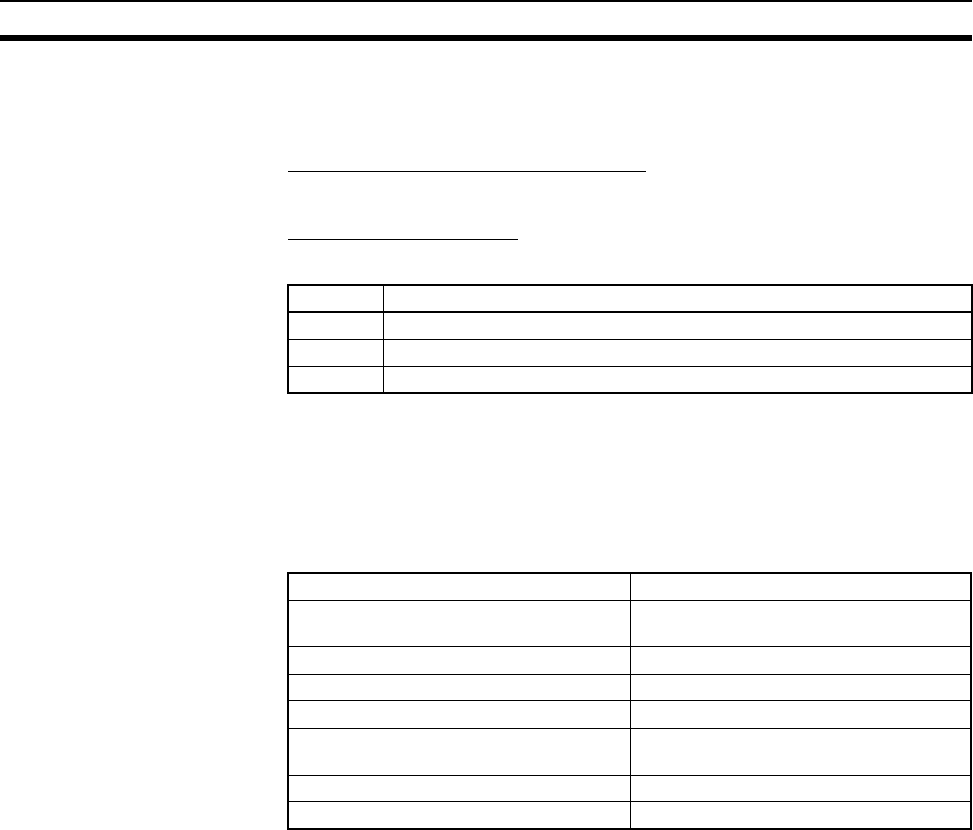
265
Message Delay Times Section 8-4
In this case, the data processing time required for data exchange and the data
transmission time are not negligible and need to be included in the calcula-
tion. Each time can be determined as follows.
Data Processing Time (see page 254.)
0.0025 × (8 + 16) × 8 + 4.7 = 5.18 ≅ 5.2 ms
Data Transmission Time
Data transmission time varies with the baud rate.
In this example, the number of data link words is (8 + 16)
× 8 = 192, so the
data transmission time can be determined as follows:
0.008
× (8 + 16) × 8 = 1.536 ≅ 1.5 ms
Assume that the sum of the instruction execution time and I/O refresh time for
the PLCs at nodes #1 and #7 is 1 ms. The equation for minimum data link I/O
response time is as follows:
Noise may increase I/O delays.
8-4 Message Delay Times
The two charts which follow indicate the sequence of processing which will
enable users to calculate the maximum delay time to be expected between
the time SEND(192) or RECV(193) is executed and the time the data is stored
in the destination or source node’s memory area, ready for use by other
instructions in the program.
8-4-1 CS/CJ-series, CVM1, and CV-series PLCs
SEND The following diagram indicates the data flow which will yield the maximum
delay time from the time SEND(192)/SEND(90) is executed by the user pro-
gram to the time the Controller Link Unit stores the data in the destination
Unit’s memory.
Baud rate Data transmission time
2 Mbps Number of data link words × 0.008 ms
1 Mbps Number of data link words × 0.016 ms
500 Kbps Number of data link words × 0.032 ms
Input ON delay ---
Instruction execution time + I/O refresh
time for PLC at node #1
1 ms
Data processing time 5.2 ms
Data link transmission time 1.5 ms
Data processing time 5.2 ms
Instruction execution time + I/O refresh
time for PLC at node #7
1 ms
Output ON delay ---
Total (data link I/O response time) 13.9 ms


















